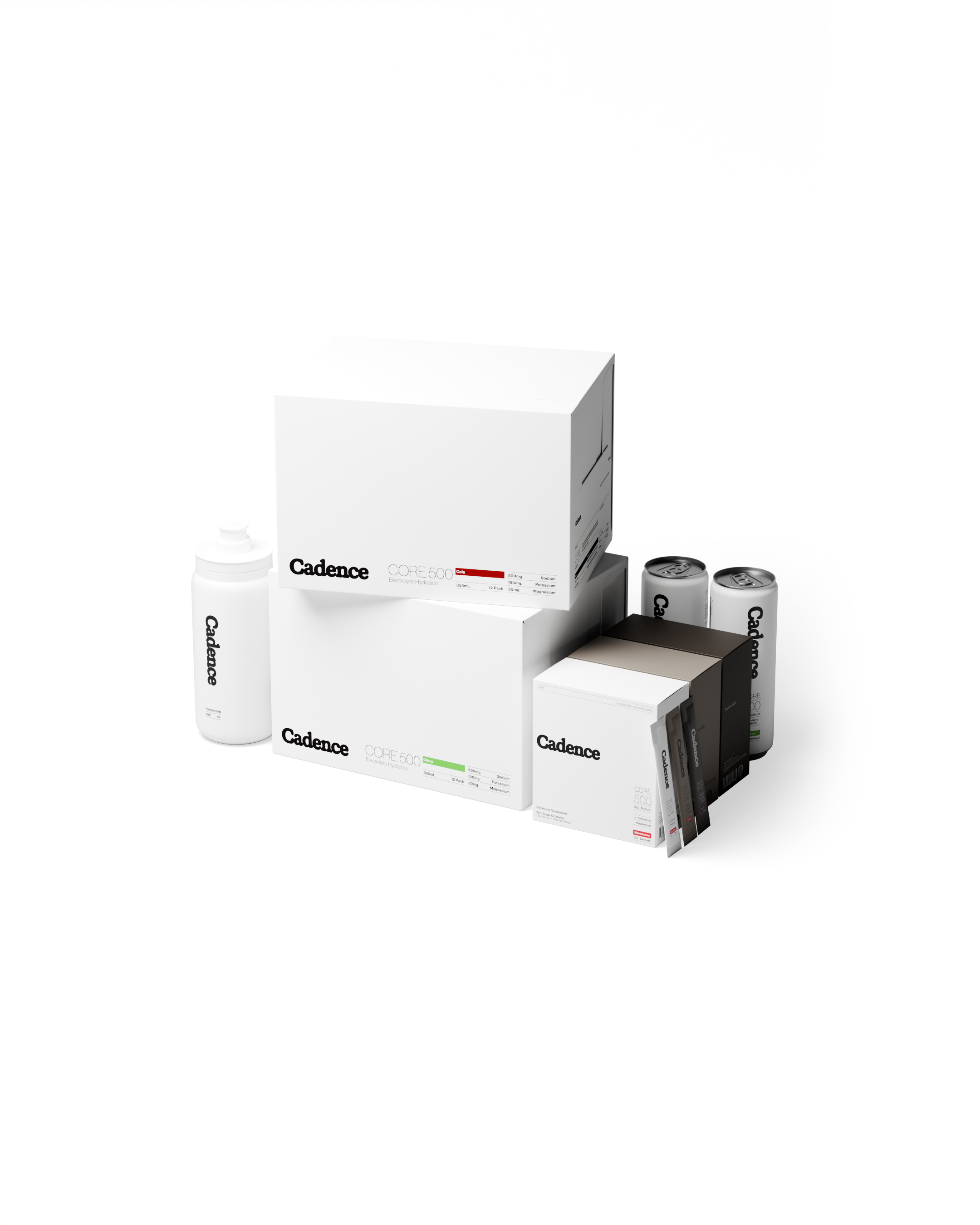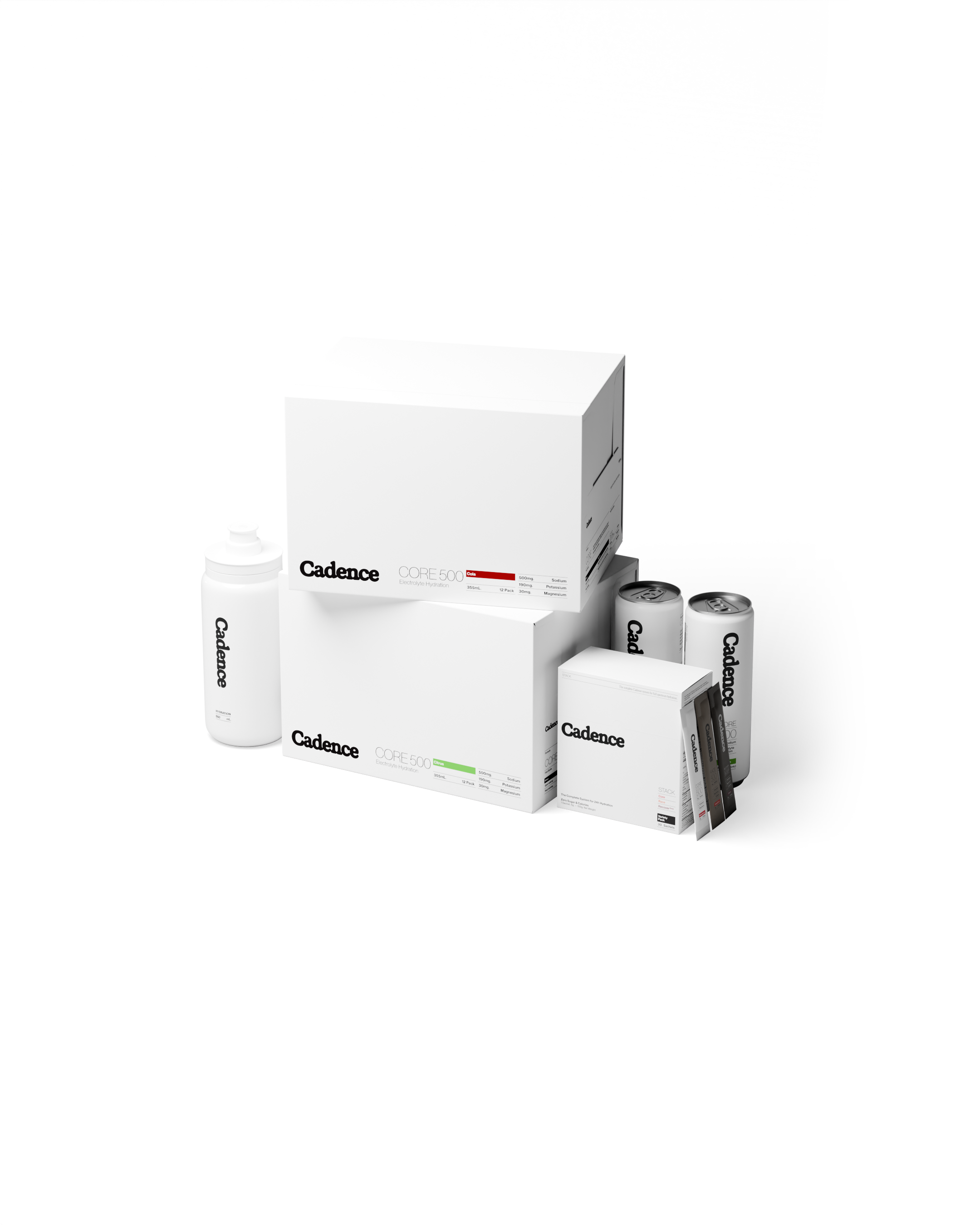Introduction
Glycine is a non essential amino acid, known for its roles in the central nervous system and its potential benefits for sleep, mental state, and recovery.
Research has highlighted glycine's efficacy in improving sleep quality. For instance, one study found that glycine intake before bedtime significantly improved subjective sleep quality and reduced fatigue the next day (Yamadera et al., 2007). Additionally, glycine's calming effect on the brain has been speculated to potentially promote better mental wellbeing.
Furthermore, glycine may also play a role in recovery by aiding in collagen synthesis and reducing inflammation, which is crucial for muscle repair and joint health (Razak et al., 2017). These findings suggest that glycine can not just improve sleep and support a better mental state, but also improve physical recovery, making it a valuable supplement for overall well being.
This article is going to break down the research, firstly presenting an overview of the role of L-glycine on sleep. We’ll present all of the research backing the acclaimed benefits. The article will also present the data on various dosages and timings, as well as the benefits of daytime l-glycine supplementation.
The Role of L-Glycine in Sleep
Glycine is an amino acid which has been studied for its effects on body temperature regulation and influence on deep and REM sleep stages. A lowering of the core body temperature is required for initiating and maintaining sleep. Studies have found that glycine supplementation before bedtime significantly reduces core body temperature, improving the time to onset of sleep and improving sleep efficiency (Bannai et al., 2012). Furthermore, glycine has been shown to improve deep sleep and REM sleep (Yamadera et al., 2007).
In a randomised controlled trial, participants who consumed glycine experienced increased deep sleep and REM sleep, as well as reduced sleep onset latency time (Bannai et al., 2012). These improvements are believed to be due to glycine's ability to modulate neurotransmitter activity in the brain, promoting relaxation and reducing the time it takes to transition into deeper sleep stages.
Benefits & Scientific Evidence on L-Glycine and Sleep
We’ll now present some of the main benefits rooted in research conclusions on the benefits of L-Glycine for sleep.
Reduced feelings of fatigue the following day
Glycine supplementation before bedtime significantly reduces feelings of fatigue the next day. A study by Yamadera et al. (2007) found that participants reported a reduction in fatigue by about 15% compared to the placebo group.
Wake after sleep onset
Glycine can reduce wakefulness after sleep onset. One study in Sleep and Biological Rhythms indicated that participants taking glycine experienced 28% less wakefulness after initially falling asleep compared to the control group.
Reduced daytime sleepiness
Glycine supplementation before bed has been shown to reduce daytime sleepiness the following day. Bannai et al. (2012) reported that participants experienced a 29% reduction in daytime sleepiness when taking glycine before sleep.
Increased sleep efficiency
Glycine improves sleep efficiency by enhancing the proportion of time spent asleep while in bed. Research published by Inagawa et al. (2006) demonstrated a 13% increase in sleep efficiency among participants taking glycine before bedtime.
REM sleep
Glycine has been shown to improve the duration of restorative REM sleep. Bannai et al. (2012) found that glycine supplementation increased REM sleep duration by 20% compared to the placebo group.
Optimal Dosage and Timing for Sleep Benefits
Current research suggests that the optimal dosage and timing for glycine supplementation to improve sleep quality and daytime functioning is typically around 3 grams taken before bedtime. For example, a study published in Sleep and Biological Rhythms demonstrated significant improvements in sleep quality and reduced fatigue with a 3g dose of glycine taken 30 minutes before bed (Yamadera et al., 2007). Similarly, a study in the Journal of Pharmacological Sciences found that 3g of glycine before bedtime enhanced sleep efficiency, increased REM sleep, and reduced sleep latency (Bannai et al., 2012).
Supplementing with 1 gram of glycine also shows benefits, although the effects may be less pronounced compared to higher doses. Research shows that even at this lower dosage, glycine can still improve certain aspects of sleep. A study in the Journal of Clinical Sleep Medicine reported that a 1-gram dose of glycine taken before bed resulted in a significant reduction in sleep onset latency and improved subjective sleep satisfaction (Inagawa et al., 2006). Whilst the benefits at 1g are evident, higher doses, such as 3 grams, tend to provide more comprehensive improvements in sleep quality and daytime functioning.
Overall, for optimal results, a dosage of 3 grams of glycine taken approximately 30 minutes before bedtime is recommended, although such large dosages might not always be practical nor convenient, so in most cases, a lower dose of 1 gram can offer notable benefits.
Daytime Benefits Post L-Glycine Consumption
There is also research that found daytime benefits from consuming L-Glycine (on days following a night supported with L-glycine consumption) which we shall present and discuss here.
Improved Cognitive Function
Pre sleep glycine supplementation has been shown to improve cognitive performance the following day.
A study published in Frontiers in Behavioral Neuroscience found that glycine improved memory retrieval and cognitive tasks by 12% (File et al., 1999).
Improved Mental State
L-glycine intake before bed has been found to positively impact mental wellbeing via the reduction of stress. Research in the Journal of Clinical Sleep Medicine reported a 19% reduction in subjective stress and anxiety levels in participants who took glycine before sleep (Inagawa et al., 2006).
Increased Alertness and Reduced Daytime Sleepiness
L-glycine has been found to improve daytime alertness and reduce sleepiness. Bannai et al. (2012) observed a 29% reduction in daytime sleepiness among participants who were supplemented with glycine before bed.
Better Mood and Reduced Fatigue
L-glycine consumption before sleep leads to better mood and reduced feelings of fatigue. A study in Sleep and Biological Rhythms showed a 15% improvement in mood and a significant reduction in fatigue the following day (Yamadera et al., 2007).
Dietary sources of L-Glycine
Glycine can be naturally obtained through various dietary sources. Rich sources of glycine include meat, fish, dairy products, and legumes. 100g of pork provides approximately 3.5g of glycine, so a 30g serving could serve around 1g of glycine. Similarly, 100g of chicken offers about 1.8g of glycine, so consuming around 55g can provide 1g of glycine.
For those preferring fish, 100g of cod contains approximately 2g of glycine, making a 50g portion sufficient to achieve 1g of glycine (Awuchi et al., 2022).
Dairy products such as milk and cheese, as well as legumes like soybeans, also contribute glycine, although in smaller amounts, typically requiring larger portions to meet the 1g dosage target. Incorporating these foods into your diet can help naturally boost your glycine intake and support overall health.
Conclusion
L-Glycine is a non essential amino acid which facilitates improved sleep quality by promoting relaxation and potentially lowering core body temperature, thus aiding in quicker sleep onset and improved deep and REM sleep stages. By potentially supporting mental wellbeing and aiding physical recovery through mechanisms such as collagen synthesis and inflammation reduction, glycine can be a valuable supplement for both mental and physical health.
Whilst you're here, be sure to take a look at our Sleep Hydration Sachets, which contain 1000mg of L-Glycine per serving, as well as other sleep aid ingredients such as L-Tryptophan, Ashwagandha, Magnesium, Zinc, Valerian Root Extract, Vitamin B6 and L-Theanine. If you would like to sample our full range of electrolyte sachets, be sure to explore our variety pack of hydration sticks.
Frequently Asked Questions (FAQs)
What is L-Glycine and how might it aid sleep?
L-Glycine is a non essential amino acid which plays a role in the central nervous system. It aids sleep by potentially lowering the core body temperature and modulating neurotransmitter activity, which may help reduce sleep onset latency and increase time in deep and REM sleep stages, thus improving overall sleep quality.
How does glycine impact daytime functioning after sleep?
Glycine supplementation before bedtime has been shown to reduce feelings of fatigue and increase alertness the following day. It may improve cognitive functions and reduce daytime sleepiness, leading to better mood.
What is the optimal dosage and timing for glycine to improve sleep?
The optimal dosage for glycine to enhance sleep quality is around 3 grams, taken approximately 30 minutes before bedtime. This dosage has been shown to improve sleep efficiency, increase REM sleep duration, and reduce sleep latency. However, 3g per day may be inconvenient, in which case a dose as low as 1 gram can offer benefits, though they may be less pronounced.
Can glycine help with physical recovery?
Yes, L-glycine may aid in physical recovery by promoting collagen synthesis and reducing inflammation. These properties are crucial for muscle repair and joint health, making L-glycine beneficial for recovery after physical activities.
What are some of the best dietary sources of glycine?
Glycine can be found in high concentrations in protein-rich foods such as meat, fish, dairy products, and legumes. For example, pork and chicken are excellent sources, with 100g of pork providing about 3.5g of glycine and 100g of chicken offering about 1.8g. Fish like cod and dietary staples like soybeans also provide significant amounts of glycine.
References
Yamadera, W., Inagawa, K., Chiba, S. et al. Glycine ingestion improves subjective sleep quality in human volunteers, correlating with polysomnographic changes. Sleep Biol. Rhythms 5, 126–131 (2007). https://doi.org/10.1111/j.1479-8425.2007.00262.x
Razak, M. A., Begum, P. S., Viswanath, B., & Rajagopal, S. (2017). Multifarious Beneficial Effect of Nonessential Amino Acid, Glycine: A Review. Oxidative medicine and cellular longevity, 2017, 1716701. https://doi.org/10.1155/2017/1716701
Bannai, M., & Kawai, N. (2012). New therapeutic strategy for amino acid medicine: glycine improves the quality of sleep. Journal of pharmacological sciences, 118(2), 145–148. https://doi.org/10.1254/jphs.11r04fm
INAGAWA, K., HIRAOKA, T., KOHDA, T., YAMADERA, W. and TAKAHASHI, M. (2006), Subjective effects of glycine ingestion before bedtime on sleep quality. Sleep and Biological Rhythms, 4: 75-77. https://doi.org/10.1111/j.1479-8425.2006.00193.x
File, S. E., Fluck, E., & Fernandes, C. (1999). Beneficial effects of glycine (bioglycin) on memory and attention in young and middle-aged adults. Journal of clinical psychopharmacology, 19(6), 506–512. https://doi.org/10.1097/00004714-199912000-00004
Awuchi, C. G., Chukwu, C. N., Iyiola, A. O., Noreen, S., Morya, S., Adeleye, A. O., Twinomuhwezi, H., Leicht, K., Mitaki, N. B., & Okpala, C. O. R. (2022). Bioactive Compounds and Therapeutics from Fish: Revisiting Their Suitability in Functional Foods to Enhance Human Wellbeing. BioMed research international, 2022, 3661866. https://doi.org/10.1155/2022/3661866

